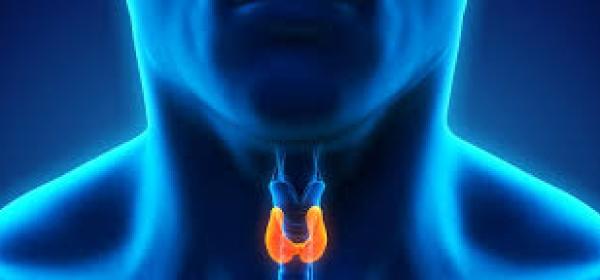Back to Blog
Jun 7, 2016
Dr. Izabella Wentz’s Insightful Talk On Hashimoto’s Thyroiditis
by Dr. Dan Kalish
Image

Dr. Izabella Wentz Pharm.D., FASCP is a solution focused clinical pharmacist who took The Kalish Method Mentorship Program in 2013. She has since created quite a remarkable career from both a clinical and entrepreneurial standpoint. After being diagnosed with Hashimoto’s Thyroiditis in 2009, Dr. Wentz was surprised at the lack of knowledge about lifestyle interventions for Hashimoto’s, hypothyroidism, and autoimmune conditions. She decided to take on lifestyle interventions as a personal mission in an effort to help herself and others with Hashimoto's. She has summarized three years of research and two years of testing in her book: Hashimoto’s Thyroiditis: Lifestyle Interventions for Finding and Treating the Root Cause. To learn more about Hashimoto’s Thyroiditis including symptoms, diagnosis and treatment, continue reading an excerpt of Dr. Wentz’s interview below or Kalish Community Members may watch the complete interview HERE.
“A lot of us weren’t taught in school that Hashimoto’s was the primary reason for hypothyroidism, accounting for 95-99% of cases of hypothyroidism in most Westernized countries that add iodine to the salt supply. Worldwide, iodine deficiency is the primary cause of hypothyroidism but this is definitely not the case in the US. People with Hashimoto’s are oftentimes going to have symptoms of both hypo- and hyperthyroidism. A lot of times, they’re going to be swinging back and forth between the two within the first 10-15 years that they have the condition. A person may have fatigue and hypersomnia, they may have coarse hair or thin hair that starts to fall out. We see a lot of issues with mood –anxiety, palpitations and irritability.
I’ve seen people who were misdiagnosed and hospitalized with bipolar disorder and psychosis, placed on heavy duty psychotropic drugs in the early stages of Hashimoto’s when the thyroid function swings from hypo to hyper. Clearly as thyroid hormones impact our emotions, that can surely mimic bipolar disorder. People with Hashimoto’s can have an inability to lose weight, they can have trouble gaining weight and it’s not always the same for every person. Cold intolerance and heat intolerance can be issues with Hashimoto’s. Fertility issues, a lot of times we see women who get diagnosed either after having their first baby or not being able to conceive and issues with miscarriages as well. Brain fog and a lack of motivation or apathy are also common factors of Hashimoto’s.
The ideal situation is if we can figure out what the triggers are and remove them. For example if we can figure out what’s causing leaky gut or what those antigens are and remove them. We don’t know all of the triggers out there, but every month I learn about new triggers. We can also work on getting the person modulating their immune system, and helping them reduces oxidative stress. Of course genetic predisposition will remain. If somebody’s root cause was gluten and they got off gluten, they can go into remission from Hashimoto’s. If they start eating gluten again, they’ll get Hashimoto’s again. I definitely think remission is a good goal to shoot for and the first goal should always be to help the person feel better. All these root causes are classified as toxins, intestinal permeability, chronic infections, nutrient depletion, poor stress response and food sensitivities. If somebody has overt hypothyroidism and they’re in the advanced stage, a lot of times we do need to recommend that they get on thyroid medications because that’s one of the fastest ways for a person to feel better.”

